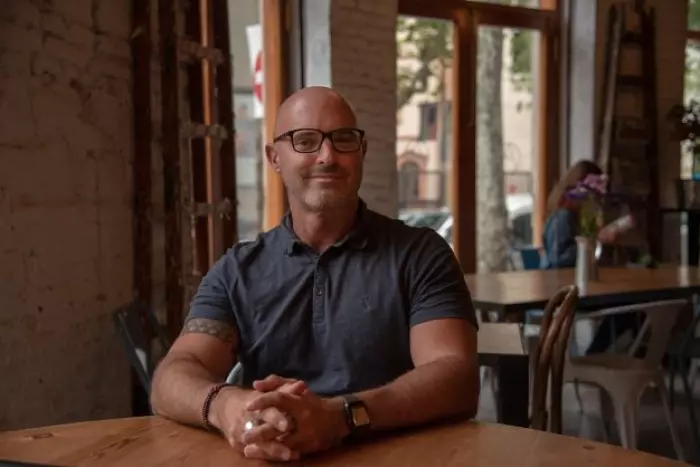When covid-19 forced Rhys Jarvis back to New Zealand, ending his “best life” in Barcelona, it was his first time back in the local job market in 18 years.
Since leaving an international online sales and marketing role at Air NZ in 2003, he’d worked in an increasingly impressive array of big digital tech jobs in Europe, the UK and Australia.
What he didn’t expect, when he came home, was to struggle even to get a job interview.
“It wasn’t a planned move, which meant it wasn’t a smooth landing,” he told BusinessDesk from Sydney, having abandoned hope of finding work in Auckland.
He was more than happy to take a lower-paid job and applied for plenty that were several rungs below his previous experience.
But as research released this morning by expatriate network Kea New Zealand found, many returning Kiwis are surprised to find their international experience is either not appreciated or seen as a threat.
Conducted by research firm TRA and involving 2,633 members of the 500,000-strong network between April 23 and June 2, the ‘Welcome Home’ survey found that barely 5% of New Zealanders who had returned felt their skills and experience were understood by NZ employers.
That’s in stark contrast to the 38% of those intending (but yet) to return who believed their work history would resonate with employers back in Aotearoa.
Culture shock
Northland-born Ethan Jones, fluent in Mandarin and with five years working in fast-moving liquor retailing in mainland China, found it similarly hard when he came back to NZ.
 Ethan Jones - fluent in Mandarin, employers weren't biting (Image: supplied)
Ethan Jones - fluent in Mandarin, employers weren't biting (Image: supplied)“You come back, you’ve learned all these skills and it’s like you haven’t done anything for five years,” he says of the common response of potential employers here. “Career-wise, it was the equivalent of ‘where were you?’”
Frustrated by unsuccessful job-hunting, Jones and his Chinese partner headed north before covid-19 hit to try and establish a tourism business aimed at mainland Chinese tourists. Before the pandemic killed that idea, it frustrated him to get no traction – not even a callback – from the local tourism authority.
New Zealand, he found, was a bit sleepy compared to the fast pace of Chinese commerce.
In a crucial insight for Kiwis intending to return, Jones says that coming home was “a much bigger culture shock than it was going over to Asia”.
“I think when you're going over, you’re expecting it, but when you come back, you aren’t. It was a lot harder coming back.”
Now ensconced as a business adviser at the Asia-NZ Foundation, Jones hopes to contribute to better connecting New Zealanders with their internationally experienced fellow citizens.
Soft landing
For Holly Knill, the experience of return could not have been more different.
Living in Sydney, after leaving NZ in the mid-2000s for roles in TV and digital streaming that took her to London, the United Arab Emirates in what she now calls the “champagne and hummus years”, she’d just finished a ‘right-sizing’ exercise at broadcaster Foxtel that included making herself redundant.
 Headhunted for her skills - Holly Knill (Image: supplied)
Headhunted for her skills - Holly Knill (Image: supplied)She’d been contemplating a few months of quality time with her daughter and taking a course in corporate governance.
“Before that could happen, I had a call from (corporate headhunting firm) Korn Ferry in New Zealand,” she tells BusinessDesk, with an offer of a plum role: chief customer officer at challenger telco 2degrees.
With an infant in tow and a sceptical eye to the surprising levels of “casual racism and sexism” she found in Australian culture, the timing was good for a return to Aotearoa.
And 2degrees was looking for someone who wasn’t from a telco background, “but close enough to help them try and take hold of their growing consumer business”.
Two weeks in MIQ in February this year, and Knill hit the ground running and is finding being back in her home country “awesome”.
“Some friends said it would be hard, but for me, actually no. It’s been very familiar, welcoming and quite easy.”
Obviously, the Auckland traffic is a lot worse than it was in 2006 and the price of everything is as much of a surprise to the Knill household as it is to most other recent returnees from bigger, more competitive economies.
While the NZ market is much smaller than she’s used to, but she’d already made a big step down from the UK market to Australia. The “metrics that govern your day” have the same effect, no matter the market size.
Planned vs unplanned return
Rhys Jarvis was disappointed by his experience in NZ, but not bitter.
“New Zealand ticks so many wonderful boxes but if you are at a stage of your career where you need progression, then you need a planned return to coming back.
“It’s extremely hard to break in. I had been away for nearly 20 years,” he said. “The longer you’re disconnected, the more your network becomes reduced. My professional network was severely reduced.”
But even then, he found the networking culture in Auckland less open to seizing unexpected opportunity and his international experience an unexpected handicap.
“In New Zealand, I’m an unknown quantity, but the flipside of that was that even in trying to establish my personal brand and international experience, a couple of interactions I had were that ‘you have no NZ experience’.”
Sometimes. he felt that employers “saw dollar signs” on his forehead while potential colleagues in large corporate roles may have been fearful that an internationally experienced hire might threaten their own jobs.
Certainly, the research for Kea shows a sorry mismatch between what local employers think and returning Kiwis expect.
It found 43% of employers think internationally experienced applicants will want higher wages than NZ candidates, while 52% of those returning expect to earn less than they did offshore, with 31% accepting they will earn considerably less.
In the end, after 10 months back home, Jarvis scored just two job interviews.
“New Zealand is an amazing place and I love it dearly,” he says from his new home in Sydney, where the housing is equally expensive but he reckons he’s earning 40% more than he might have in NZ. “But it’s a small place and if someone chooses to live and work in far bigger international roles, I’m also pragmatic about what it’s like to re-enter.”
These trends worry Kea’s chief executive Toni Truslove, with the TRA survey showing 15% of Kiwis surveyed who have already returned are now considering going back offshore.
With 31% of those polled in the survey say they intend to return to NZ eventually (20% intend to return within two years) – despite economic momentum gathering in the countries where they’ve ridden out the pandemic so far – internationally experienced New Zealanders represent “an amazing opportunity to benefit from skills, experience and investment”.
“But frankly, we need to do more as a nation to engage them.”
In a statement accompanying today’s release, Productivity Commission chair Ganesh Nana said internationally experienced New Zealanders had much to offer to “help lift innovation and the governance of our businesses and industries”.
These days, Rhys Jarvis is head of digital services at the University of New South Wales – a big, challenging “enterprise role” paying something close to his salary in Barcelona.
“If I’d found a role like that in Auckland, I would probably still be there now.”
Our loss, their gain.
* Kea and BusinessDesk have entered into a mutually beneficial non-monetary media partnership.













